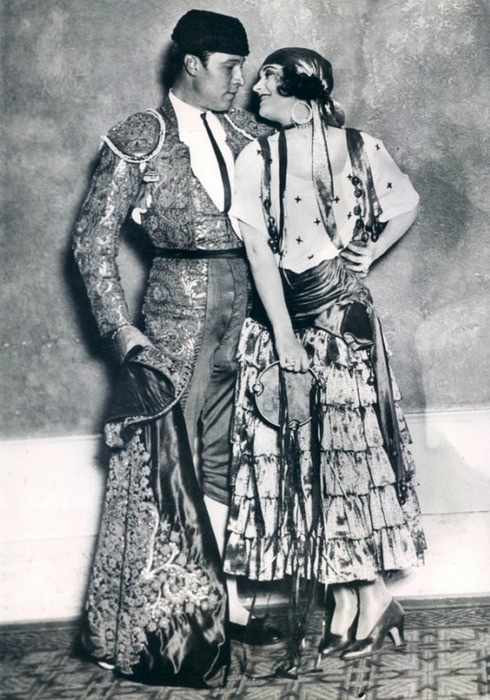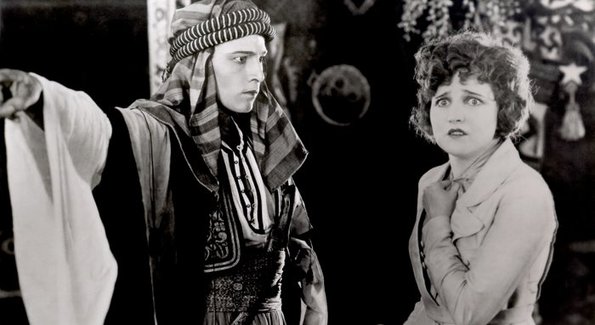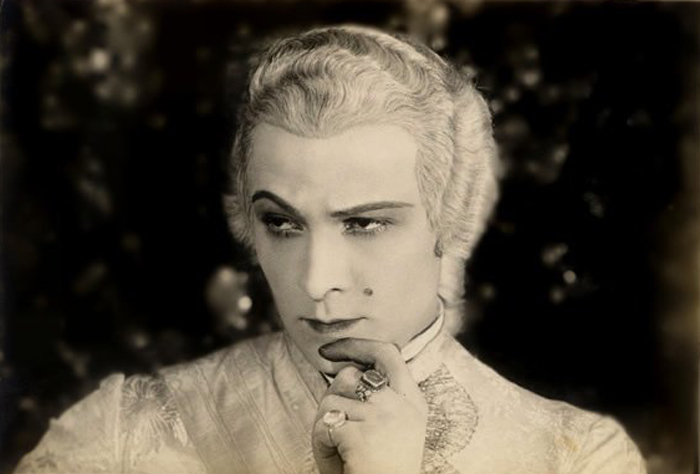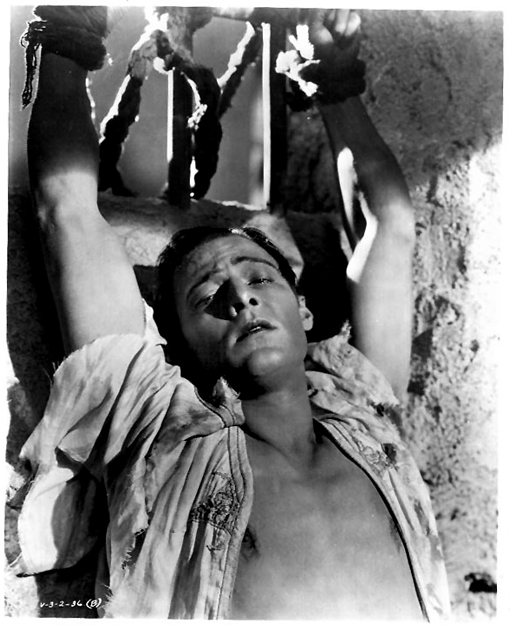
Rudolph Valentino; one of the most charming and diverse faces of early cinema, since [mostly] forgotten thanks to the distractions of Britain's Got The X Factor Come Dancing and the music of Lady Auto-tune.
His career spanned from 1914, when he played uncredited bit-parts, to his final film, The Son of the Sheik, in 1926. Tragically, he died later that year, after having emergency surgery to treat appendicitis and gastric ulcers. Although the operation was successful, peritonitis had already spread throughout his body due to his condition remaining untreated for so long. Sadly, his doctors neglected to explain the seriousness of his illness, leaving Valentino convinced the malady would pass. Right up until his death, it was reported that Rudolph Valentino talked of his future.
Rudolph Valentino was one of the most popular stars of his time, amassing a legion of fans, who were sent into mass hysteria over his tragic demise. An estimate of 100,000 people crowded the streets of New York in order to pay their respects, and reports soon came in of suicides and riots. Actress Pola Negri (another favourite of mine), who claimed to be his fiance (an issue which remains hazy to this day. Personally, the romantic in me prefers to think of this as fact!), collapsed in very public hysterics and ordered flowers spelling out her name to be placed on top of Valentino's coffin.
 Valentino and Pola Negri
Valentino and Pola Negri
Despite his popularity at the end, it wasn't easy for Valentino to carve a career for himself. It was only in 1921, with the release of The Four Horsemen of The Apocalypse that he was, technically, a star, although the studio refused to acknowledge this. Despite The Four Horsemen being the first film to make a million at the box office, Metro Pictures would not give Valentino a raise and for his next film forced him, once again, into a bit part. Yearning for respect, he quit Metro and entered into a contract with Famous Players-Lasky, a studio that focussed on commercial film. It was in this company that his stardom was embraced and his reputation as the "Latin Lover" set in stone. The Sheik became Rudolph Valentino's defining film, both in his career and his image. It is no secret of the questionable attitudes concerning other races at this time, and such a film could have easily slipped into racism (by today's standards); however Valentino attempted to distance his character from the stereotypical Arab man. When asked to comment on the subject, he said, "People are not savages because they have dark skins. The Arabian civilization is one of the oldest in the world...the Arabs are dignified and keen brained."
 Valentino and Agnes Ayres in The Sheik
Valentino and Agnes Ayres in The Sheik
Despite Valentino's legion of female fans, American men were far less impressed, and his masculinity was often questioned throughout the media. Men idolised the personality of stars such as Douglas Fairbanks (who I wouldn't kick out of bed either), however many began to take inspiration from Valentino's looks; a man who greased his hair back was known as a "Vaselino." Despising the gossip concerning his sexuality, Valentino often carried snippets of newspaper articles with him in order to criticise the contents.
Surprisingly, his sexuality continues to be questioned to this day, mostly due to the two, short-lived marriages he engaged in. In 1919 actress Jean Acker married Valentino, in part to remove herself from a lesbian love triangle she was embroiled in. Understandably, this marriage did not last long, however they remained married for 2 years, during which Valentino met Natacha Rambova. This second marriage ended bitterly, with many of Valentino's associates describing Rambova as "controlling". These marriages have since been questioned to have been "lavender marriages" in order to hide the lesbian affairs each woman was reportedly involved in.
Another rather amusing rumour was that Rudolph Valentino was involved with Ramón Novarro, despite Novarro claiming they barely knew eachother. According to books such as Hollywood Babylon, Valentino had given Novarro an art deco dildo, which was found stuffed down Novarro's throat at his death.
 "GAY, MOI?" Valentino in Monsieur Beaucaire
"GAY, MOI?" Valentino in Monsieur Beaucaire
Gay, bi-sexual or just an old romantic, Rudolph Valentino remains one of my favourite Dandies of the past. Seeming quite a chameleon, he portrayed a beautifully clad Arab, a Russian outlaw (squee!), a dapper playboy Earl (SQUEE!) and a much-loved toreador (SQUUUUEEE!!!). If only he had played Napoleon, then I would have assumed we were made for eachother. Oh well, I'll make do with gazing longingly...
